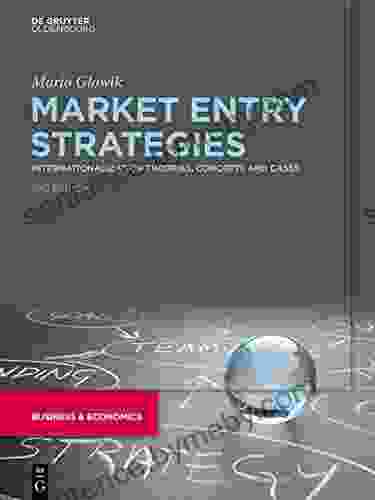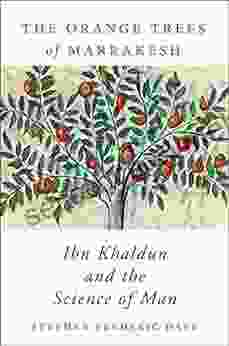Ibn Khaldun: A Guiding Light in the Science of Man

In the vast annals of intellectual history, the name of Ibn Khaldun stands as a beacon of enlightenment, a scholar whose groundbreaking insights into human civilization continue to resonate centuries after his time. Known as the "father of sociology," Khaldun revolutionized our understanding of social phenomena, laying the foundation for modern social theory.
4.3 out of 5
| Language | : | English |
| File size | : | 1766 KB |
| Text-to-Speech | : | Enabled |
| Screen Reader | : | Supported |
| Enhanced typesetting | : | Enabled |
| Word Wise | : | Enabled |
| Print length | : | 400 pages |
Born in Tunis in 1332 CE, Khaldun was an extraordinary polymath, fluent in several languages and well-versed in a wide range of disciplines, including history, economics, philosophy, and theology. His magnum opus, the seven-volume "Muqaddimah" (Prolegomena),is a masterpiece of social science that has earned him widespread recognition as one of the greatest thinkers of all time.
The Science of Man
Khaldun's primary preoccupation was the study of human civilization, which he believed could be understood through a rigorous scientific approach. He rejected the prevailing notions of his time, which attributed social phenomena to divine intervention or the whims of capricious rulers. Instead, he argued that human societies evolved according to natural laws that could be discerned through careful observation and analysis.
In the "Muqaddimah," Khaldun introduced a number of revolutionary concepts that continue to shape our understanding of social dynamics. He recognized the importance of geography, climate, and economic factors in shaping the development of civilizations. He argued that societies undergo a cyclical process of rise, decline, and renewal, driven by internal forces such as tribal cohesion, political stability, and economic prosperity.
Contributions to Sociology
Khaldun's contributions to sociology are multifaceted and profound. He is credited with developing the concept of social solidarity, which he believed was essential for the maintenance of a stable and prosperous society. He recognized the importance of social institutions, such as the family, tribe, and state, in shaping individual behavior and social Free Download.
Khaldun also made important observations about the role of education in society. He believed that education was a powerful force for social progress, enabling individuals to develop their potential and contribute to the well-being of the community. He advocated for the education of both men and women, recognizing the importance of female empowerment for a thriving society.
Historical Insights
Khaldun's historical insights were equally groundbreaking. He rejected the traditional chronological approach to history, arguing that the past could only be truly understood by examining the underlying social, economic, and political forces that shaped it. He emphasized the importance of studying the history of different civilizations to identify patterns and draw lessons that could apply to the present.
Khaldun's historical works, such as the "Book of Lessons," provide valuable insights into the rise and fall of empires, the dynamics of social change, and the challenges faced by societies throughout history. His ideas continue to inform our understanding of the complexities of human history and provide a framework for analyzing the challenges facing our own time.
Legacy and Impact
Ibn Khaldun's legacy is immense. His groundbreaking ideas had a profound impact on the development of social science, history, and philosophy. His work was translated into several languages and widely disseminated throughout the world, influencing the thinking of scholars from Europe to Asia.
In recent decades, there has been a renewed interest in Khaldun's work, recognizing its relevance to contemporary social issues. His ideas on social dynamics, the role of institutions, and the importance of education continue to resonate with scholars and policymakers alike.
Ibn Khaldun was a visionary thinker whose insights into human civilization have stood the test of time. His groundbreaking work revolutionized our understanding of the social world and set the stage for the development of modern social theory. Through his rigorous scientific approach, he illuminated the fundamental laws that govern human societies and provided a framework for understanding the complexities of our own time.
Today, Ibn Khaldun's legacy continues to inspire scholars and policymakers around the world, providing a guiding light as we navigate the challenges of the 21st century. His work reminds us of the importance of scientific inquiry, social justice, and the pursuit of knowledge in creating a more just and sustainable world.
4.3 out of 5
| Language | : | English |
| File size | : | 1766 KB |
| Text-to-Speech | : | Enabled |
| Screen Reader | : | Supported |
| Enhanced typesetting | : | Enabled |
| Word Wise | : | Enabled |
| Print length | : | 400 pages |
Do you want to contribute by writing guest posts on this blog?
Please contact us and send us a resume of previous articles that you have written.
 Book
Book Novel
Novel Page
Page Chapter
Chapter Text
Text Story
Story Genre
Genre Reader
Reader Library
Library Paperback
Paperback E-book
E-book Magazine
Magazine Newspaper
Newspaper Paragraph
Paragraph Sentence
Sentence Bookmark
Bookmark Shelf
Shelf Glossary
Glossary Bibliography
Bibliography Foreword
Foreword Preface
Preface Synopsis
Synopsis Annotation
Annotation Footnote
Footnote Manuscript
Manuscript Scroll
Scroll Codex
Codex Tome
Tome Bestseller
Bestseller Classics
Classics Library card
Library card Narrative
Narrative Biography
Biography Autobiography
Autobiography Memoir
Memoir Reference
Reference Encyclopedia
Encyclopedia Jason Ross
Jason Ross Mark I Sutherland
Mark I Sutherland James Maskalyk
James Maskalyk Julian Rice
Julian Rice Richard Walter
Richard Walter Ran Walker
Ran Walker Jason Hutton
Jason Hutton Jeffrey Flanagan
Jeffrey Flanagan Janie Emaus
Janie Emaus Laura Davis
Laura Davis Luisa Gastambide
Luisa Gastambide James Graham
James Graham Roger Housden
Roger Housden Thomas Grebel
Thomas Grebel Jamie Della
Jamie Della Nicholas Wapshott
Nicholas Wapshott Vanessa Holburn
Vanessa Holburn James Harrington
James Harrington Jason Diamond
Jason Diamond Janet Owen
Janet Owen
Light bulbAdvertise smarter! Our strategic ad space ensures maximum exposure. Reserve your spot today!

 Brayden ReedUnleash Your Child's Inner Artist: A Comprehensive Guide to "How to Draw for...
Brayden ReedUnleash Your Child's Inner Artist: A Comprehensive Guide to "How to Draw for...
 Hamilton BellPrepare to Embark on a Spine-Tingling Journey: Discover the Horrifying Depths...
Hamilton BellPrepare to Embark on a Spine-Tingling Journey: Discover the Horrifying Depths...
 Ismael HayesUnravel the Unravel the Taut Web of Mystery with "Violets Are Blue: An Alex...
Ismael HayesUnravel the Unravel the Taut Web of Mystery with "Violets Are Blue: An Alex... Ernest HemingwayFollow ·11.4k
Ernest HemingwayFollow ·11.4k Ian PowellFollow ·7.8k
Ian PowellFollow ·7.8k Chris ColemanFollow ·6.4k
Chris ColemanFollow ·6.4k James GrayFollow ·17.5k
James GrayFollow ·17.5k Bryan GrayFollow ·4.5k
Bryan GrayFollow ·4.5k Casey BellFollow ·10.9k
Casey BellFollow ·10.9k Dallas TurnerFollow ·2.3k
Dallas TurnerFollow ·2.3k E.E. CummingsFollow ·5.4k
E.E. CummingsFollow ·5.4k

 Franklin Bell
Franklin BellHow Businesses Can Thrive In The New Global Neighborhoods
The world is becoming...

 Rob Foster
Rob FosterCard Manipulations Volume 1: A Masterclass in Deception...
Unveiling the...

 Enrique Blair
Enrique BlairUnveil the Secrets of Card Manipulation: Dive into "More...
Step into the captivating world...

 Jamal Blair
Jamal BlairComedy Fillers 200 Quips One Liners Jean Hugard
Unlock the Secrets of...

 Chase Simmons
Chase SimmonsUnlock Financial Independence: A Comprehensive Guide to...
In a world where financial security seems...

 Dion Reed
Dion ReedUnveiling Global Market Entry Strategies: A Comprehensive...
Global Market Entry Strategies:...
4.3 out of 5
| Language | : | English |
| File size | : | 1766 KB |
| Text-to-Speech | : | Enabled |
| Screen Reader | : | Supported |
| Enhanced typesetting | : | Enabled |
| Word Wise | : | Enabled |
| Print length | : | 400 pages |






